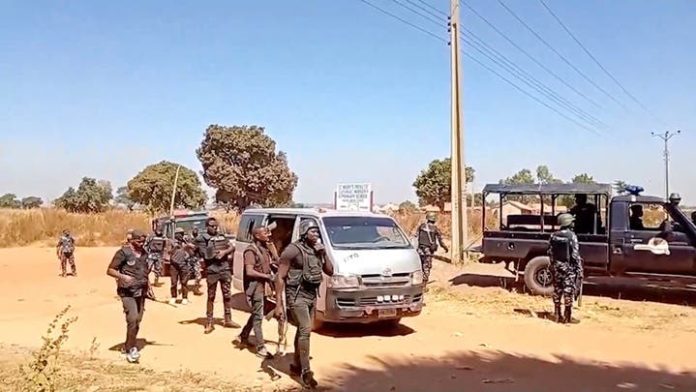News Investigators/ Authorities in Nigeria have been urged to take all lawful measures to halt vile attacks against the citizens.
The UN human rights office, OHCHR, which made the appeal in Geneva on Tuesday also urged the Nigerian Government to hold those responsible to account.
No fewer than 402 people, mainly schoolchildren, have been kidnapped in four states in the north-central Nigeria of Niger, Kebbi, Kwara and Borno since Nov. 17.
ONCHR also asked Nigeria to investigate the increasing wave of attacks and abductions by insurgent groups.
The News Agency of Nigeria (NAN) reports that all the 38 kidnapped victims from a Church in Kwara have been freed while some school children have also escaped from captivity.
“We are shocked at the recent surge in mass abductions in north-central Nigeria,” OHCHR Spokesperson Thameen Al-Kheetan said.
“We urge the Nigerian authorities at all levels to take all lawful measures to ensure such vile attacks are halted and to hold those responsible to account.”
OHCHR said the authorities must ensure the safe return of all those still being held and prevent further abductions.
Meanwhile, the World Food Programme (WFP).has regretted that the insurgent attacks have intensified this year.
The UN food agency said the rise in insurgent attacks is threatening regional stability and causing a spike in hunger.
According to WFP’s latest analysis, nearly 35 million people are projected to face severe food insecurity in Nigeria during the 2026 lean season from June to August, the highest number ever recorded in the country.
WFP said Jama’at Nusrat al-Islam wal-Muslimin (JNIM), an al-Qaeda affiliate, reportedly carried out its first attack in Nigeria in October.
It said that the Islamic State in West Africa Province (ISWAP) is reportedly seeking to expand across the Sahel region.
“Communities are under severe pressure from repeated attacks and economic stress,” David Stevenson, WFP Country Director and Representative in Nigeria, said.
“If we can’t keep families fed and food insecurity at bay, growing desperation could fuel increased instability with insurgent groups exploiting hunger to expand their influence, creating a security threat that extends across West Africa and beyond.”
WFP noted that northern Nigeria is experiencing the most severe hunger crisis in a decade and rural farming communities are the hardest hit.
Nearly six million people are projected to face crisis levels of hunger or worse during the 2026 lean season in Borno, Adamawa and Yobe states.
This includes some 15,000 people in Borno state, who are expected to confront catastrophic hunger, or famine-like conditions.
The situation is unfolding as WFP continues to face funding shortfalls, which have forced the agency to scale down nutrition programmes in the northeast in July, affecting more than 300,000 children.
WFP warned that resources for emergency food and nutrition assistance will run out in December, and meaning millions will be left without vital support next year.
NAN


